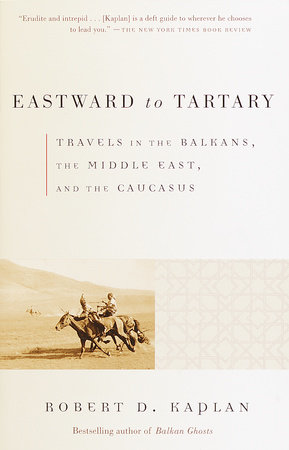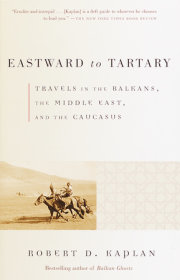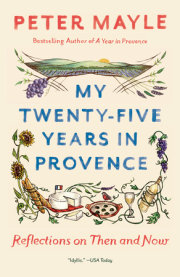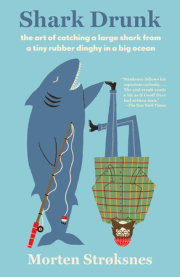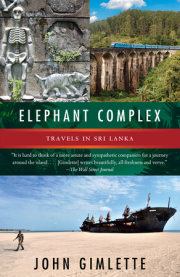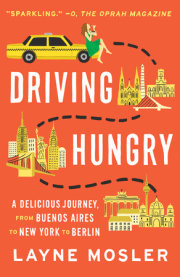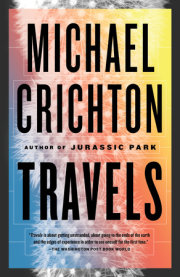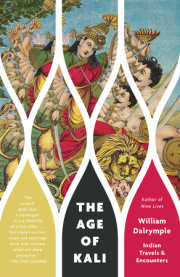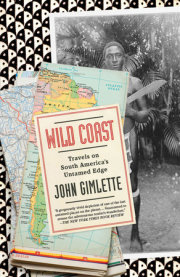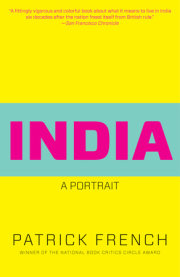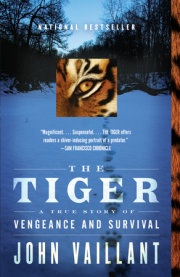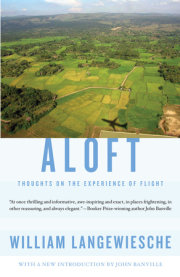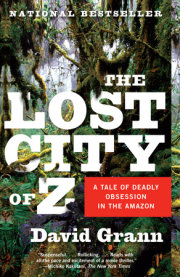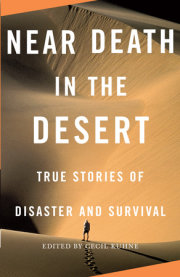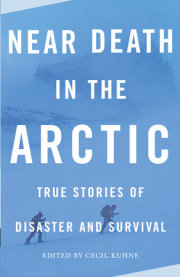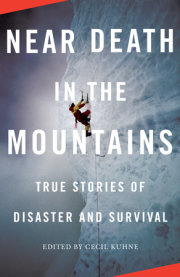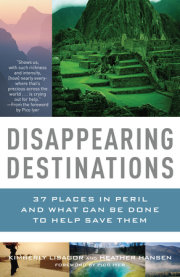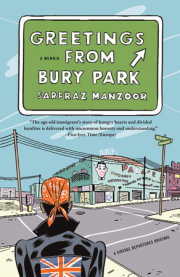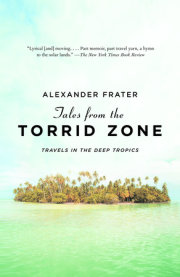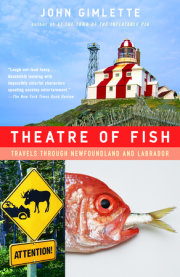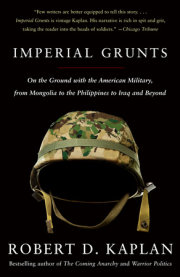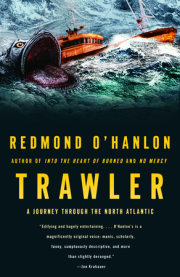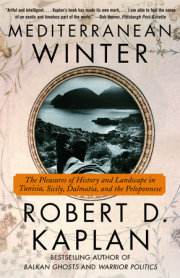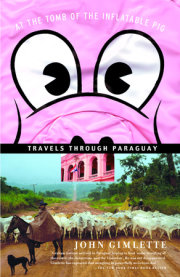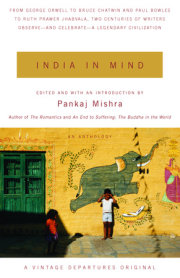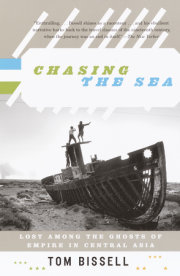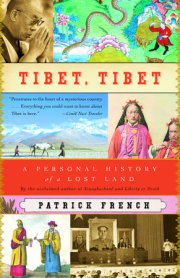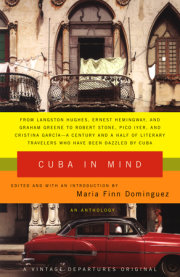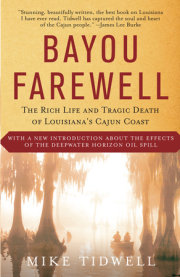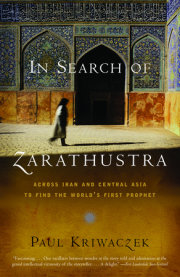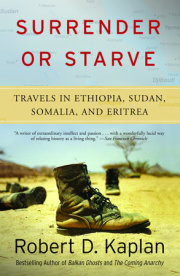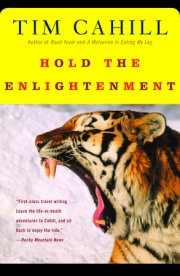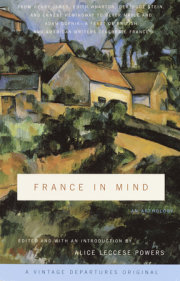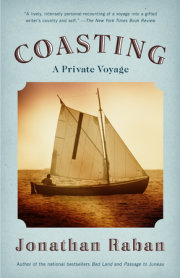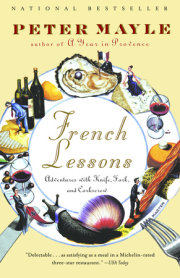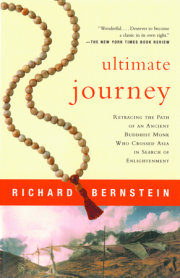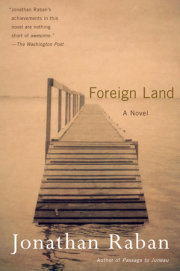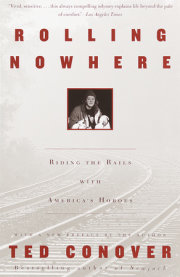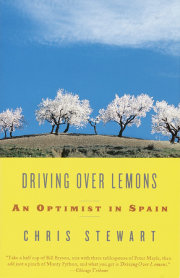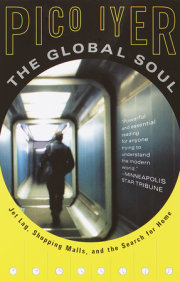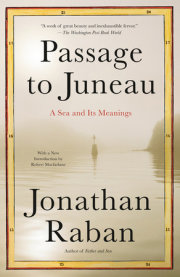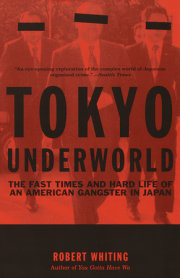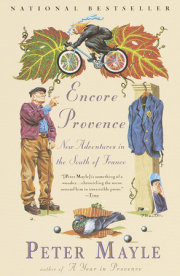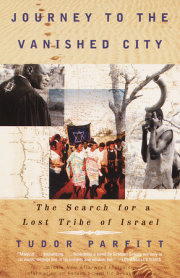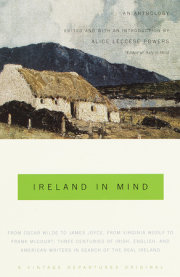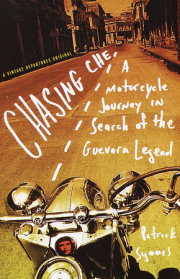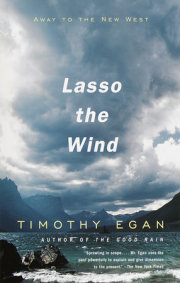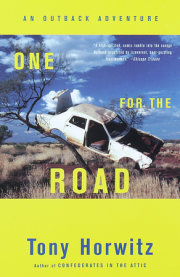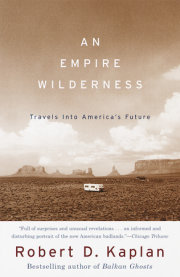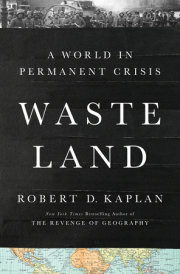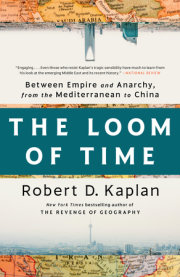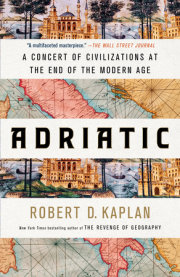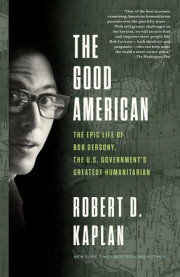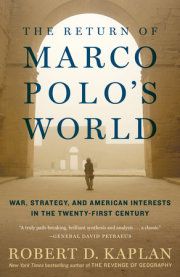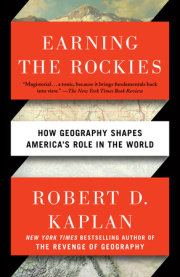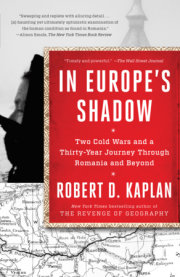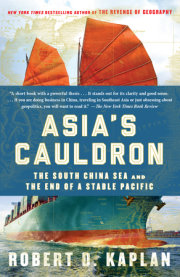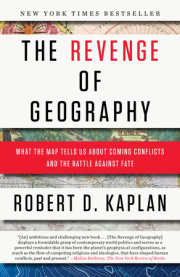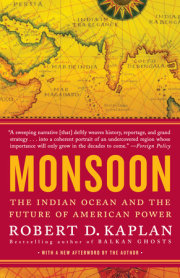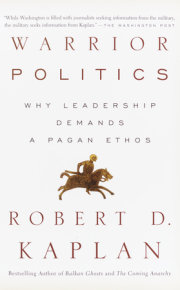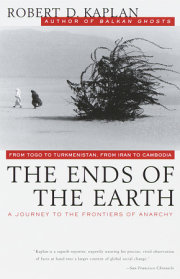1
RUDOLF FISCHER, COSMOPOLITAN
The scent of plum brandy and red wine mixed with the mildew and dust from old books and maps. It was ten in the morning, February 17, 1998. I was in an apartment in the drab eastern outskirts of Budapest. My host, Rudolf Fischer, suggested that we start drinking. "The slivovitz is kosher—look at the Hebrew label! And the wine is young—from a barrel in Villá¡nyi, in southern Hungary. It will rest easy in your stomach and loosen our tongues.â€"
Peasant rugs, folkloric weavings, and other Balkan bric-a-brac filled Fischer's small living room, which also functioned as his library: early-twentieth-century volumes, in several languages, on Balkan nationalism, the Persian and Ottoman empires, the Byzantine heritage of Greece, and other subjects having to do with Europe's back-of-beyond. Fischer, with thick white hair, a mustache, and a wistful expression, wore suede trousers and a sleeveless sheepskin shepherd's vest. His rakish appearance and the backdrop of maps and trinkets reminded me of the Victorian explorer, linguist, and secret agent Sir Richard Francis Burton in old age, in his library in Trieste.1 It was to Fischer that I had come for advice before beginning my journey through the Near East, from the Balkans to Central Asia, what the Elizabethans called Tartary.
"I was born in 1923," Fischer told me, "in Kronstadt, in Transyl- vania, a mainly German city, which is now called Brasov in Romania. My father was a Hungarian Jew from a strictly Orthodox family. My mother was a Saxon German and a Lutheran. She was among the Nazis' favored Volksdeutsche—a term laden with racial implications, reserved for ethnic Germans in Eastern Europe and southern Russia. "My parents loved each other deeply. Does that surprise you? Before Hitler, relations between the ethnic groups were full of such irony and subtlety, you cannot imagine. My mother escaped from Communist Romania by pretending to be Jewish and going to Israel. My wife is also a Saxon Lutheran, from near Kronstadt. Of course," he added, smiling, "I was Jewish enough for the Nazis, but not enough to satisfy the Israeli rabbis of today." Fischer handed me his calling card. There was no telephone number or address on it, just two words:
rudolf fischer vakalaray
The Greek word, he explained, signified "a nineteenth-century writer of love letters" to women on behalf of their husbands, who were away in the Turkish army and did not know how to write their own.
We exchanged toasts, and Fischer unfurled his set of late-nineteenth-century Austrian army staff maps and a somewhat earlier German one. "These are the maps you must use at the start of your journey," he told me. "They are better than the Cold War-era maps. The maps before 1989 are, of course, useless. The Iron Curtain is still a social and cultural border. Do you know the real service provided by McDonald's in Hungary and the other formerly socialist countries? They are the only places where people—women, especially—can find a clean public lavatory."
Fischer washed down his second slivovitz with red wine. Pointing with his finger at the mid-nineteenth-century German map, he told me: "The Carpathian Mountains, which now run through Romania, mark the end of Europe and the beginning of the Near East. North and west of the Carpathians lay the old Austro-Hungarian empire. Here, the map is like a modern one—see how crowded it is with towns. But, look: To the south and east of the Carpathians, the map is virtually empty. That was the old Ottoman Turkish empire, where few surveys had been done and trade was not regulated—Walachia, Serbia, and Bulgaria. These places are still underdeveloped compared to Transylvania, Croatia, and Hungary."
Let me explain; it is less complicated than it sounds. Very simply put, the split running through the Balkans between the Austro- Hungarian and Ottoman empires to which Fischer referred reflects a much earlier division. In the fourth century a.d., the Roman empire divided into western and eastern halves. Rome remained the capital of the western empire, while Constantinople became the capital of the eastern one. Rome's western empire eventually gave way to Charlemagne's kingdom and to the Vatican: Western Europe, in other words. The eastern empire—Byzantium—was populated mainly by Greek-speaking Orthodox Christians, and later by Moslems, when the Ottoman Turks captured Constantinople in 1453. The border between the eastern and western empires ran through the middle of what after World War I became the multiethnic state of Yugoslavia. When that state broke apart violently in 1991, at least initially it echoed the divi- sion of Rome sixteen centuries earlier: The Slovenes and Croats were Roman Catholics, heirs to a tradition that went back from Austria-Hungary to Rome in the West; the Serbs, however, were Eastern Orthodox and heirs to the Ottoman-Byzantine legacy of Rome in the East.
The Carpathians, which run northeast of the former Yugoslavia and divide Romania into two parts, reinforced this boundary between Rome and Byzantium and, later, between the Habsburg emperors in Vienna and the Turkish sultans in Constantinople. Rudolf Fischer told me that the Carpathians, which were not easily traversed, halted the eastward spread of European culture, marked by Romanesque and Gothic architecture and by the Renaissance and the Reformation.2 "This is why Greece, too, belongs to the East," Fischer said. He added that "Romania—because of the influence of the Renaissance and the Reformation in the northwest of the country—had been more developed than Greece before World War Two!"and waved his hand for emphasis. "It was only the Truman Doctrine—$10 billion in American aid, in 1940s dollars no less—that created today's westernized Greece.
ÆLet me go on in the same vein," Fischer continued. "The differences between the Hungarian Stalinist leader Má¡tyá¡s Rá¡kosi and the Romanian Stalinist leader Gheorghe Gheorghiu-Dej, and even more so between their successors, Já¡nos Ká¡dá¡r and Nicolae Ceausescu, were the differences—don't you see!—between Habsburg Austria-Hungary and Ottoman Turkey. Rá¡kosi and Ká¡dá¡r may have been perverse Central Europeans, but as Hungarians, they were Central Europeans nonetheless. But Gheorghiu-Dej and Ceausescu were Oriental despots, from a part of Europe influenced more by Ottoman Turkey than by Habsburg Austria. That's why communism did less damage to Hungary than to Romania."
Indeed, in Central Europe, communism claimed to be the cure for the economic inequalities and other cruelties wrought by bourgeois industrial development, a radical liberal populism of a sort, while in the former Byzantine-Ottoman empire, where there had never been such modern development, communism was simply a destructive force, a second Mongol invasion.
"Vá¡ci utca," exclaimed Fischer, referring to a fashionable shopping street in Budapest, "with its chandeliers and Merry Widow atmosphere— that is not a creation of postcommunism but of communism itself as Hungarians, with their Central European tradition, interpreted it in the 1970s and 1980s."3
tT
History and geography, of course, are only blueprints upon which humankind superimposes the details.4 Take the Iron Curtain, a crea- ture less of geographical and cultural patterns than of late-World War II power politics, which created another division to go alongside the one that separated the Habsburg and Ottoman empires. In one sense, the differences in development between ex-Communist countries affected by Habsburg rule—such as Hungary, the Czech Republic, and Poland—and those affected by Byzantium and Ottoman Turkey—such as Romania and Bulgaria—are profound. In another sense, however, Hungary shares more than it may like to admit with its former Warsaw Pact allies Romania and Bulgaria. Fischer explained that despite its economic progress, Hungary still cannot easily escape its past:
"Our whores in Budapest are Russian and Ukrainian; our money—though it floats freely—is still worthless in the West; our oil and gas are from Russia; and we have mafia murders and corruption just like in the countries to the south and east. Mafia shootings and the drug trade put pressure on the Hungarian government to make [entrance] visas compulsory for Romanians, Serbs, and Ukrainians, who are thought to be the culprits, but that will never happen, because it will separate us from the ethnic Hungarians just over the [Romanian] border. We are tied to the ex-Communist East, whether we like it or not."
He might have added that the hallway in his building was dark and untidy, like many that I had seen throughout the formerly Communist world, where decades of state ownership had given people no incen- tive to maintain property, an attitude that was changing slowly. There was, too, the building itself, and all the others in Fischer's neighborhood, whose unfinished look and poor construction—plate glass and mustard-colored cinder blocks—were more typical of buildings in formerly Communist Central Asia than those in Austria, just a two-hour ride away by train. The Berlin Wall may have fallen in November 1989, but for a traveler almost a decade later, its ghost was still present.
"What about NATO?" I asked. "Will its new eastern frontier— following the admission of Poland, the Czech Republic, and Hungary— mark the border of the Near East?"
"NATO doesn't matter," Fischer said, waving his hand dismissively. "Only the EU [European Union] is real." He explained that the European Union is about currency, border controls, passports, trade, interest rates, environmental and dietary regulations—the details of daily life—which will change Hungary. "For decades Austria was not part of NATO, but did you ever think of Austria as part of Eastern Europe or the Near East? Of course not." (Austria had not been part of the European Union, either, but its economy operated along the EU's free-market lines.)
Therefore, it appeared likely—at least if the EU expanded into Hungary, Slovenia, the Czech Republic, and Poland but took a decade to grant full membership to Romania, Bulgaria, Macedonia, Turkey, and Russia—that the Western alliance would be an eerie variation of the Holy Roman Empire at its zenith in the eleventh century, and the split between Western and Eastern Christianity would be institutionalized once more, as it had been during the divisions between Rome and Byzantium and the Habsburg and Ottoman empires. The Near East would then begin on the border of Hungary and Romania. Completing the reemergence of this older map, Russia was now returning to the dimensions of sixteenth-century Muscovy: a vibrant city-state within a chaotic hinterland.5
"Hungarians want to spiritualize the frontiers—that is the word that they use here," Fischer remarked.
"You mean they want the borders to be filters: to protect, but not to divide," I said.
"Perhaps," Fischer replied dryly. "What the Hungarians really want is to let ethnic Hungarians from the east into Hungary, but nobody else." Fischer then railed against the "modern age" in Europe, in which democratic stirrings in the late nineteenth and early twentieth centuries strengthened ethnic nationalism, while industrialization strengthened the power of states. The result was the collapse of multiethnic empires like Habsburg Austria-Hungary and Ottoman Turkey and the rise of uniethnic powers like Germany and of nasty tribal principalities in the post-World War I Balkans, though they were in some cases called parliamentary democracies. Even the 1848 democratic revolutions in Central Europe, it seemed, were not so pure; they were based on ethnicity as much as on liberal ideals, and in Hungarian (Magyar) areas, at least, were opposed by the minority Croats, Serbs, and Romanians.6 For Fischer, with his background, the modern age had meant "Magyarization campaigns" and other forms of "ethnic cleansing," crucial to the establishment of petty states tyrannized by ethnic majorities. The modern age, he told me, was symbolized by what had happened on his twenty-first birthday, September 17, 1944:
"Because my father and I had fled Romania when World War Two broke out and managed to get visas to Australia, I was in the Australian army on my twenty-first birthday. My commanding officer had given me a short leave. Thus, I spent my birthday alone, walking in the Australian countryside and thinking about who among my family and friends back in Transylvania were alive or dead. What had happened to them?
"Soon after the war, I learned that on that very day, Hungarian soldiers shot the entire Jewish population of Sá¡rmá¡s, a village east of Kolozsvá¡r, in Transylvania.7 Those poor people. They had thought of themselves as Hungarians. They spoke Hungarian. They had managed to survive five years of fascism without being deported to concentration camps. It was as if they had been miraculously forgotten while every kind of horror reigned around them. Then their own Hungarian soldiers appeared in Sá¡rmá¡s, and what did they do? They herded all the Jews into pigsties for several days and then took them to a hill and massacred them. Within the Holocaust, there were many little pogroms."8
A week after Fischer told me this story, I would visit that same hill in Sarmaau, Romania. It was a vast and sloping fold of grass surrounded by villages of rotting wood, where wild pigs scampered through the mud and peasants in black sheepskins worked with scythes. I saw three lines of graves, 126 in all, each with a Star of David and a Hebrew inscription. The graves were surrounded by an ugly cement barrier, a brutal box that might be called "modern history." I climbed over the barrier and read the Romanian inscription:
. . . [Hungarian] fascist troops, the enemies of mankind, occupied the village of Sarmaau, where they herded all the Jews—men, women, and children—inside pigsties, where they kept them without food and tortured and humiliated them in the most vicious manner for ten days, after which they were taken to this hill of weeping and killed in the most sadistic ways on the eve of the Jewish holiday Rosh Hashanah. . . .9
Of course, this monument in Romania made no mention of equally horrible atrocities perpetrated against Jews by the Romanians themselves during World War II.
"That is why I remember so vividly walking alone in Australia on my twenty-first birthday," Fischer continued. "Because the memory of it was preserved by what I later found out had occurred on that same day in Sarmaau. You see, Robert, Hungarian nationalism, Romanian nationalism—they're all bad. The boundary formed by the Carpathians was benign compared to these modern nationalistic boundaries, because the Carpathians divided empires within which peoples and religions mixed. I am a cosmopolitan. That is what every civilized person must now try to be!"
I told him that cosmopolitanism must always be linked to memory. Without memory, there would be no possibility of irony—the very stuff of history. For, as Fischer said, Jews, Gypsies, Kurds, and other minorities were generally safe within autocratic regimes such as Habsburg Austria and Ottoman Turkey but were killed or oppressed when these autocracies began giving birth to independent states dominated by ethnic majorities, such as Austria, Hungary, Romania, Greece, and Turkey.
Fischer picked up his walking stick and told me to take my coat. "We're going for a walk. I have something to show you before you start your journey."
For thirty minutes, he led me briskly along dreary boulevards wheezing with traffic, through underpasses and an empty park, then along the tracks of a railway that wove through the foul backyards of old apartment buildings. We passed people wearing baggy clothes and soiled smocks, carrying battered briefcases. "You are now in what the early-twentieth-century Austrian writer Heimito von Doderer called 'the serious parts of a town,' where a city shows the ugly organs underneath its pretty skin,"Fischer remarked. I thought of the necklace of diamond-and-tomato-colored lights along the streets by the Danube, with their smart shops and packs of Western tourists, several tram stops away to the west: Budapest's downtown was already in Western Europe and the twenty-first century, but this part of town was still in Eastern Europe and, as I soon learned, living in the time before the collapse of the Berlin Wall.
Near Orczy Square, in the far-off southeast corner of Budapest, we came to an immense hodgepodge of metal-framed stalls and greasy canteens set up in abandoned Russian railway cars. I saw Chinese- manufactured high-top running shoes on sale for the equivalent of ten dollars, sweaters for four dollars, socks, clocks, jackets, cell phones, shampoo, toys, and just about any other necessity—all cheap and made in either Asia or formerly Communist Europe. Many of the goods were Russian. The food at the canteens was Turkish. The merchants were Chinese, Kazakhs, Uzbeks, and other Central Asian nationalities, but mostly Chinese. I noticed bus stops for destinations in Romania and other points east, but never west. Hungarian policemen were ubiquitous, for there had been several murders here recently. Nobody was well dressed.
"People in Budapest call this place the Chinese market,"Fischer told me. "It grew in the early 1990s, after the Soviet Union collapsed and China loosened travel restrictions on its own citizens. It is a real caravansary." Chinese families dominated a vast underground trading network that provided cheap goods for the overwhelming majority of people in Eastern Europe, who could not afford the new Western-style shops. Here, any language worked. Commerce was the great equalizer. "Yes, it is a bit violent, with gangland killings," Fischer said. "But is it any different from the backstreets of Odessa one or two hundred years ago, where my Jewish ancestors and yours were carrying on much as these people do now?
"This is all I have to show you, Robert," Fischer concluded. "Remember that the Iron Curtain still forms a community. Just look at this market. Over four decades of the most comprehensive repression cannot be wished away in a few years." Fischer guided me onto a tram and rode with me for a few stops. "It is good that you will be passing through Transylvania. Ah, so much to see there," he said, his voice full of longing. Then he stepped off the tram and waved good-bye by lifting his walking stick.
I left the tram near the Nyugati Pályaudvar, Budapest's soaring, iron-columned West Station, built by Alexandre-Gustave Eiffel in the 1870s, before he built his tower in Paris. From West Station, I began my journey east. Where I was going, and why, I shall now explain.
Copyright © 2001 by Robert D. Kaplan. All rights reserved. No part of this excerpt may be reproduced or reprinted without permission in writing from the publisher.

